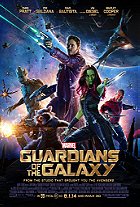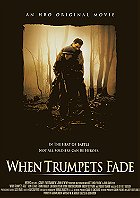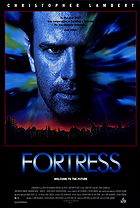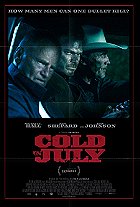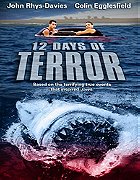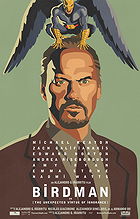Cinderella represents the next step in Disney's master plan to create live-action motion pictures from their vast catalogue of animated classics, following in the shadow of Alice in Wonderland and last year's Maleficent. Directed by Kenneth Branagh (Thor, Jack Ryan: Shadow Recruit), this Cinderella is easily the strongest upgrade so far, a dazzling fairytale with charm, heart, and intimacy to supplement the mandatory spectacle. Giving the reigns to Branagh certainly seems like a head-scratcher at first glance, yet he's the perfect man for the job, resulting in one of the most convincing fantasy films in years. Often low-key, the movie is not smeared with a disgusting amount of digital effects, and it manages to be child-friendly without directly pandering to the younger demographic. In fact, without the Disney branding or the aggressive marketing campaign, 2015's Cinderella could almost be an arthouse release. Sure, it has anthropomorphised mice and other fantastical touches, but Branagh doesn't overdo it, nor does he slather the movie in excess - effective drama and genuine feeling are the order of the day here.

The narrative remains virtually untouched, with scribe Chris Weitz creating a fairly traditional updating of Disney's animated film from 1950. Ella (Lily James) becomes an orphan following the death of her beloved parents (Hayley Atwell, Ben Chaplin), left in the care of her not-too-kindly stepmother Lady Tremaine (Cate Blanchett). Under Tremaine's regime, Ella is forced into hard labour, becoming a lowly maid for her stepmother and two grotesque step-sisters, Anastasia (Holiday Grainger) and Drizella (Sophie McShera). During a chance meeting with handsome royal prince Kit (Richard Madden), they form an instant connection, with the pair longing to see one another again. When the king (Derek Jacobi) encourages Kit to marry, a ball is arranged, with every woman in the kingdom invited to attend in order for the prince to choose a future queen. With Tremaine forbidding Ella from attending the ball and undermining her confidence, Ella's Fairy Godmother (Helena Bonham Carter) is called upon to help the girl reunite with the charming young man she wishes to marry.
Essentially, Branagh and Weitz have merely set out to tell a familiar story in a competent manner, and by all accounts, the end result is a resounding success. Anyone who’s intimately acquainted with the source material will not find many surprises here, but this is about the best live-action retelling of the fairytale that anyone could realistically expect. The most impressive aspect of the screenplay is that it gives unexpected depth to the characters; Kit and Ella do not fall in love out of Disney formula, but rather out of mutual attraction that develops organically. Moreover, Ella is not even aware that Kit is a prince during their first meeting; her heart aches for him not due to his royalty, but due to his personality. The romance is surprisingly poignant under Branagh's careful eye, and that climactic glass slipper moment is a joy to witness. Additionally, Weitz's script expounds upon a few aspects of the Cinderella story that we do not always see - including how Ella gets her Cinderella nickname - and there is an unexpected twist of conspiracy at the heart of the search for the prince's bride-to-be. Thus, while there are small alterations to the source, Branagh's treatment remains respectful and traditional.

Rather than the punishing grimness of Snow White and the Huntsman or the glossy, plastic look of Maleficent, Cinderella is more like a Shakespearean drama, reminiscent of Branagh's earlier features. As a matter of fact, the film is less successful when the trademark Disney touches pop-up, most notably in a scene featuring the Fairy Godmother that's much too broad. For the most part, however, Cinderella works. Beautifully lensed with 35mm film, the movie is endowed with a convincing look that serves the production well. Maleficent's digital look was a massive problem, as it was impossible to buy the fantastical world as real. But with a fine grain structure and a reliance on sets and costumes, Cinderella's fantasy world looks and feels real. It's rare to label any $95 million motion picture as modest, but this truly applies to Branagh's film; the budget certainly isn't as high as Maleficent ($180 million), Alice in Wonderland ($200 million) or Oz the Great and Powerful ($215 million). There is not a great deal of CGI here which is a massive advantage, as the small digital touches subtly enhance the visuals without calling attention to themselves.
Although there has been a lot of press about Lily James' impossibly thin figure, her grounded depiction of Cinderella is a huge asset to the film. There's superb humanity to her performance, as she comes across as a strong female trying to make the most of a bad situation while trying as hard as she can to retain her personal integrity and show kindness. Most of all, James possesses the beauty, grace and radiance to be a believable Cinderella. Alongside her, Madden is a terrific love interest, with a down-to-earth quality that makes him instantly sympathetic. He has no interest in the wealth or prestige of royalty, which is why he tries to hide his status from Cinderella when they first meet. Meanwhile, Blanchett's turn as the wicked stepmother is absolutely spot-on. At face value, her villainy is pure black-and-white, but there is some actual depth to the character, with justification for her rotten behaviour. Jacobi also deserves a special mention; he has little screen-time as the king and it feels like a throwaway role, but it's hard to imagine the movie being so spectacular without him.

As a little bonus for those venturing to cinemas, the movie is preceded by Frozen Fever, a short movie featuring the characters from Disney's 2013 hit Frozen. It's a sweet, charming short sure to please fans of the animated gem, featuring a new song that kids may be humming for days. It's fortunate that the short was attached to a movie as utterly satisfying as Cinderella, which should please the kids and not leave adults constantly staring at their watches. Other recent fairytale adaptations have been revisionist, but Cinderella is staunchly not revisionist, which is quite refreshing. It may seem paint-by-numbers, but Branagh infuses the story with emotion, which makes for rewarding viewing. With its gorgeous production design and ornate costuming, Cinderella is a joy, and its brisk ninety-minute runtime and competent pacing ensure that there's no narrative flab here. Indeed, the time simply flies by.
8.3/10
 Login
Login
 Home
Home 183 Lists
183 Lists 1668 Reviews
1668 Reviews Collections
Collections
 0 comments,
0 comments, 